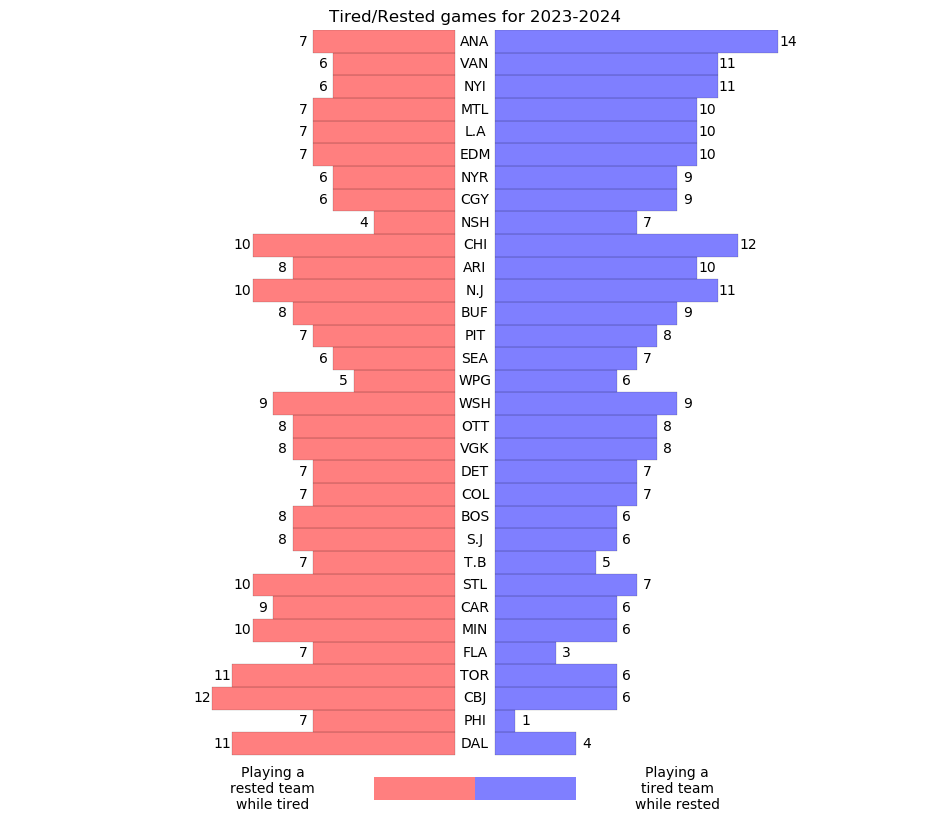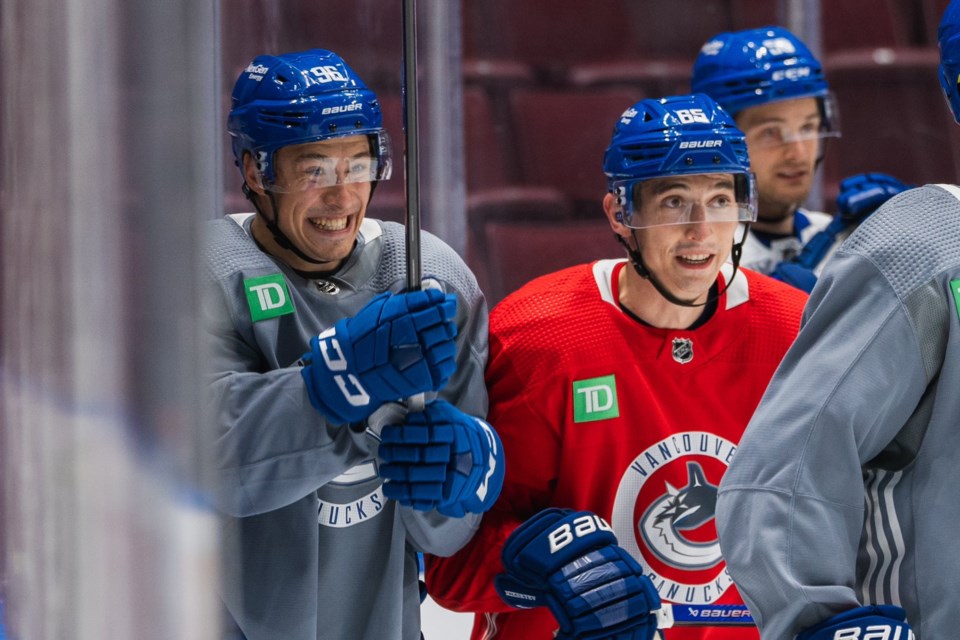The Vancouver Canucks always have a difficult schedule in some way. Their travel schedule is always difficult, seeing as they’re located in the far northwest corner of the NHL map, only recently joined there by the Seattle Kraken.
They kick off the season with a home-and-home series against the odds-on favourite to win the Pacific Division and the pick of many pundits to win the Stanley Cup: the Edmonton Oilers. That will be an immediate challenge to the strong start that they ardently desire.
They then immediately follow that up with an Eastern Conference road trip — never an easy way to start a season — that takes them all the way across the continent to face the Stanley Cup finalist Florida Panthers. In total, 10 of their first 17 games will be on the road.
While the Canucks schedule will see them face some significant challenges, there’s one distinct way in which they have one of the easiest schedules in the NHL: back-to-backs.
Back-to-back games — two games in two nights — can be a challenge for NHL teams in multiple ways.
A team’s number one goaltender typically doesn’t play both games of back-to-backs, forcing them to rely on their backup goaltender. If he does play, that number one goaltender may deal with fatigue that may not immediately impact that one game but could have an effect on their performance over the course of a season.
Teams as a whole perform worse on the second half of back-to-backs. One estimate suggested that NHL teams are 5% less likely to win when playing with zero days of rest. It doesn’t help that those back-to-back games typically come on road trips, which means the team doesn’t just have zero days of rest but has to deal with travel in between those back-to-back games.
So, how does this affect the Canucks? The impact comes in two ways: first, the Canucks have a below-average number of back-to-back games. Second: their opponents will frequently be facing them on the second half of their own back-to-backs.
The Canucks will play on back-to-back nights nine times this season, which is on the lower end in the NHL. Just five teams will have fewer sets of back-to-backs, though that includes two Pacific Division rivals in the Calgary Flames and Seattle Kraken. Making it even easier, one of those sets of back-to-back games happens to be on home ice, removing the issue of travel from the equation.
The Canucks’ toughest stretch will come in November, when they have three sets of back-to-back games, with all three of them also involving the team playing three games in four nights.
But that pales in comparison to a team like the New Jersey Devils, who have the most sets of back-to-back games this season with 16 — nearly twice as many as the Canucks.
Having fewer back-to-back games than most of the rest of the league can only be a benefit for the Canucks. But the bigger benefit is how often they’ll face opponents who are on the second half of their own back-to-backs.
A rested Canucks team will face a tired team playing for the second time in two nights 11 times this season. Only the Anaheim Ducks and Chicago Blackhawks will face a tired team while rested more times this season.
This visualization from HockeyViz makes it clear: when it comes to fatigue, the Canucks have one of the easiest schedules in the NHL this season.

The Canucks will face a rested team while tired — ie. playing on the second half of back-to-back games — just six times, while facing a tired team while rested 11 times. Only the Ducks have a more favourable ratio this season.
That should give the Canucks the advantage in those games. They’ll be facing skaters dealing with fatigue from playing the previous night and potentially be facing backup goaltenders instead of number ones.
It’s a small advantage but, for a team likely to be right on the edge of the playoff bubble this season, even a small advantage could make a difference.




